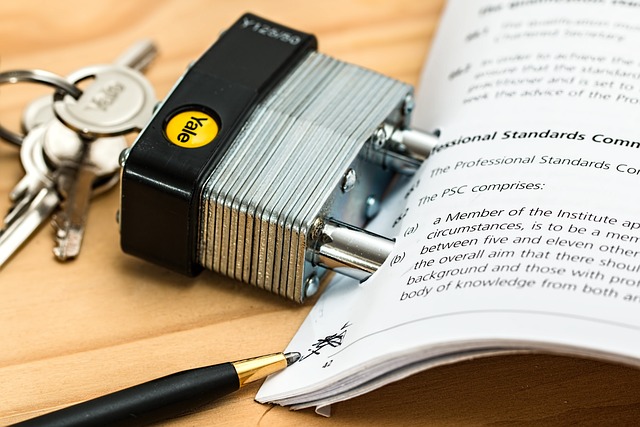For millions of Americans, renting an apartment is one of the best housing options. However, before you sign a lease agreement, there are a few things you should think about.
Introduction
Many tenants appear to believe that the only people who can ask questions during the application and leasing process are landlords, yet this couldn’t be further from the truth. It is not only your right as a tenant to be well-educated about the property you may be renting, but it is also your responsibility to clear any uncertainties you may have so that you start your new rental arrangement completely aware of what is expected of you.
In addition to the cost, you must know which documents to gather, what questions to ask the landlord, when to sign a lease, and whether or not renters insurance is required. Knowing these can make your rental experience trouble-free and enjoyable. Read along as we discuss questions to ask landlords before signing a lease.
What is a Lease Agreement?
A lease is a legally binding document that specifies the terms and conditions of renting a property and is signed by both the landlord and the tenant. It usually contains information such as the duration of the lease, rental amount, payment schedule, responsibilities of both parties, and any specific rules or restrictions.
The framework for the landlord-tenant relationship is established by the agreement, which also specifies each party’s rights and responsibilities. It might address things like maintenance, subleasing, and lease termination terms.
The intricacy of lease agreements varies and can be tailored for residential or commercial arrangements. It is crucial that both parties read the conditions carefully and comprehend them before signing, as the agreement will guide their interactions for the duration of the lease.
What Questions Should Tenants Ask?
1. Lease Terms
To guarantee a clear understanding and a satisfying rental experience, tenants should ask several important questions about the lease terms. Ask first about the duration of the lease and any options for renewal. Clarify the rent amount, the due date, and the approved payment options. It would be best to understand the guidelines on rent increases and the consequences of late payments.
Find out the specifics of the security deposit, such as the amount, the terms of its return, and any deductions. Renters should hire an expert professional property manager from Northern Virginia to guide them through their new lease.
Find more about the requirements for renter’s insurance, property improvements, and subleasing policies. Talk about any potential costs, the early termination penalties, and the process for terminating the lease. It is beneficial for tenants to have a clear and harmonious relationship with their landlords if they carefully review these lease terms.
2. Financial and Administrative Details
Tenants should ask important financial and administrative questions to gain an adequate understanding of their lease agreements. Financial inquiries should address the monthly rent, any additional fees, and the amount and terms of the security deposit.
It is critical to learn about utility responsibilities and potential rent hikes during the lease time. Understanding maintenance procedures, the duration of the lease, and the circumstances for early termination are all administrative matters.

Tenants should also request clarification on subleasing laws, if applicable, as well as any consequences for breaching the contract. Understanding the dispute resolution process, obtaining the renter’s insurance, and checking the property before moving in are also wise administrative questions.
A good awareness of these things improves the tenant’s experience and helps to avoid misunderstandings during the lease period.
3. Property Details
To guarantee a smooth rental experience, tenants should inquire about essential property details. If you want to move into a flat in the middle of September, but it isn’t available until the end of October, that will be a problem. To minimize confusion, find out when the flat will be available at the beginning of the discussion.
Clarify any restrictions or guidelines, such as those pertaining to pets and noise policies. Find out about the state of the property and the appliances and furniture that are currently there. Enquire about contact information and emergency protocols as well. Tenants who are aware of these facts are better able to make educated decisions and maintain open lines of communication with their landlord, which leads to more peaceful living conditions.
4. Maintenance
To ensure a clear knowledge of responsibilities and expectations, tenants should inquire about maintenance procedures. Questions may include how maintenance requests are handled, response timeframes, and whether a dedicated contact is available. Establishing which party is responsible for certain repairs or replacements is also critical.
You should inquire about emergency protocols and routine maintenance expectations. Knowing if regular inspections are performed might also be beneficial. By asking these questions, tenants can develop open communication about property upkeep and build a pleasant landlord-tenant relationship while ensuring a well-maintained living environment throughout the lease term.
Conclusion
The more you know about the questions to ask before signing a lease, the better protected you’ll be from surprises or upsets after the lease begins. You’ll have limited recourse to dispute the items you explicitly agreed to in the lease, so be sure you get all of your questions answered before agreeing to the terms. By asking the above questions, you should have a decent picture of what you’re getting into and enjoy a stress-free renting experience.













Leave a Reply